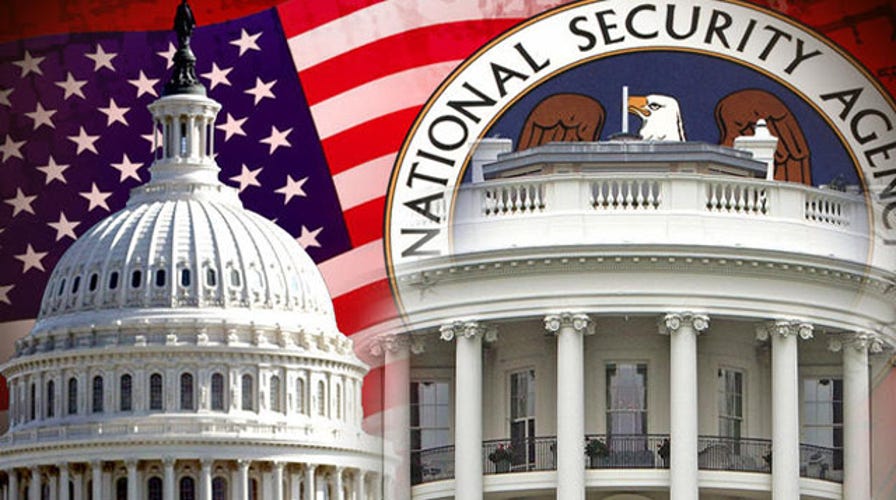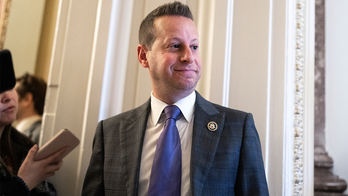Patriot Act author: NSA grab 'definitely a gov't overreach'
Rep. James Sensenbrenner raises alarm over phone record collection
Republican and Democratic lawmakers already are plotting ways to rein in the Obama administration's mass collection of phone and Internet data, after a rapid-fire series of disclosures about the program set off privacy alarms.
"This is a dragnet," Rep. Jim Sensenbrenner, R-Wis., told Fox News on Friday.
The latest development, as reported by The Guardian newspaper, is that the British government has also been secretly gathering intelligence from U.S. Internet companies via the U.S. National Security Agency data-mining project. That project, along with reports about a secret court order allowing the government to collect phone records for millions of Verizon customers, triggered a renewed debate this week over whether Americans are trading too much privacy for a sense of security.
President Obama, speaking publicly for the first time on the controversy, said Friday that the programs have made a difference in tracking terrorists and are not tantamount to "Big Brother."
Obama acknowledged that the U.S. government is collecting reams of phone records, including phone numbers and the duration of calls, but said this does not include listening to calls or gathering the names of callers.
"You can't have 100 percent security and also then have 100 percent privacy and zero inconvenience. We're going to have to make some choices as a society," Obama said.
Obama, though, welcomed a "debate" over that issue.
He'll get one.
While some security-focused lawmakers defended the program, others warned that they plan to start reassessing the Patriot Act as early as this month, with the goal of potentially curbing the data collection.
Sensenbrenner, who wrote the 2001 law that provides the legal authority for such efforts, told Fox News on Friday that he and House Judiciary Committee Chairman Bob Goodlatte, R-Va., are prepared if necessary to change the relevant portion of the law. The Patriot Act provisions are scheduled to expire in 2015 without reauthorization. Sensenbrenner said if lawmakers need to change the law before then, "we will have hearings and we'll do that."
He said the scrutiny will begin next week, when the committee holds a hearing with FBI Director Robert Mueller.
Sensenbrenner is specifically concerned about the section of the law that allows the government to obtain business records. It requires investigators to show that the information sought is relevant to an authorized investigation, but the congressman questioned how the mass collection of phone records could possibly fit under those guidelines.
Sen. Dick Durbin, D-Ill., an Obama ally, echoed Sensenbrenner's concerns -- and noted he's been raising them for years. Durbin introduced a bill in 2003 to place limits on some of these powers, and in 2005 called for the section in question to require "individualized suspicion" before collecting records. It was removed from the bill.
"This provision would require that the government could only issue a Section 215 order for an American's records if there is some connection to a suspected terrorist or spy," Durbin said in a statement, calling for a renewed debate over these possible changes.
Sen. Mark Udall, D-Colo., who has long raised concerns about data-collection efforts which he was unable to describe publicly until now, joined Durbin in calling for changes to the Patriot Act.
Sen. Rand Paul, R-Ky., meanwhile, is introducing a separate bill that aims to shore up Fourth Amendment rights against unreasonable searches.
"The revelation that the NSA has secretly seized the call records of millions of Americans, without probable cause, represents an outrageous abuse of power and a violation of the Fourth Amendment to the Constitution," he said in a statement.
His bill would order that the Fourth Amendment not be "construed" to allow any federal agency to search phone records of Americans without a warrant based on probable cause.





